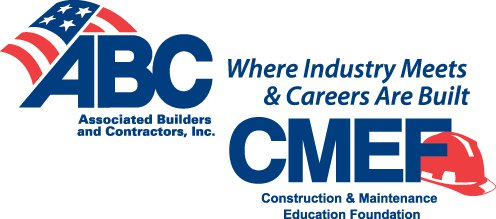Over the past few decades, there has been much debate about the best types of training programs for construction trade employees. One group believes that programs developed in-house to suit specific needs are the way to go, while another believes it is best to rely on a training model provided by an industry trade association, such as Associated Builders and Contractors (ABC), or local community colleges.
If you are a large contractor with numerous employees who need a specific type of training, company-based training works well.
This model allows a company to have full control over the curriculum, instructor, class times, logistics, recordkeeping and student attendance. Training can also be customized to company or site specifics. However, because the training is customized, each program looks a little different and produces different results.
Those company-specific training programs are a good short-term solution, but community- based training programs can offer a far better long-term solution for craft workers in the construction industry for several reasons, including quality, continuity and sustainability.
Quality: This is the most important factor as to why community-based training is needed. The training curriculum provided by ABC and other community-based organizations is coordinated by NCCER, which provides updated curriculum written by industry professionals, delivered by trained and certified teachers, and maintains student records and data in a permanent database that can be accessed by the students and their employers. The training is consistent, whether delivered in Houston, Baton Rouge or throughout the nation, and companies can rely on the transcripts provided by the NCCER-affiliated training centers.
 Continuity: The construction industry is one of constant cycles. It is extremely difficult to maintain a constant demand for a specific number of employees with a certain skillset. Even if the general economy was a flat line (which it never is and never will be), there are too many variables that owners must consider when deciding who they will hire to build those projects. Construction companies are constantly changing the number and types of employees needed to build certain projects. A well-run company can keep about two-thirds of its employees busy year-over-year, and the others are hired and terminated as workloads shift. Turnaround companies are even more cyclical, constantly expanding and contracting their employee base.
Continuity: The construction industry is one of constant cycles. It is extremely difficult to maintain a constant demand for a specific number of employees with a certain skillset. Even if the general economy was a flat line (which it never is and never will be), there are too many variables that owners must consider when deciding who they will hire to build those projects. Construction companies are constantly changing the number and types of employees needed to build certain projects. A well-run company can keep about two-thirds of its employees busy year-over-year, and the others are hired and terminated as workloads shift. Turnaround companies are even more cyclical, constantly expanding and contracting their employee base.
Sustainability: Company programs are usually designed to be short-term. As work comes and goes, so do the programs. It does not help to keep workers in the industry when their training gets interrupted by small programs that get slowed or stopped. Community programs are usually much larger and rely on a greater pool of students to maintain their operation through good times and bad.
When workers move from company to company, they need standardized training that they can maintain. Training documentation that is portable, reliable and transferable is critical, as craft professionals must be able to provide proven documentation. Consistency of content and quality of training are required. The quality of the training may vary from school to school, but using community training on the NCCER platform helps standardize the process.
In viewing the decision to train your own employees in-house or utilize a community- based training program, a long-term perspective is needed. The workforce shortage has developed in part because too many contractors are looking at short-term solutions, which prolong the skilled worker shortage. Contractors should continue to look to community- based training programs to build a sustainable skilled workforce.
For more information, call Russell Hamley at (713) 523-6ABC [6222] or email him at r.hamley@abchouston. org, or contact David Helveston, president and CEO of the ABC Pelican Chapter, at (225) 753-2590 or email him at dhelveston@abcpelican.com.

